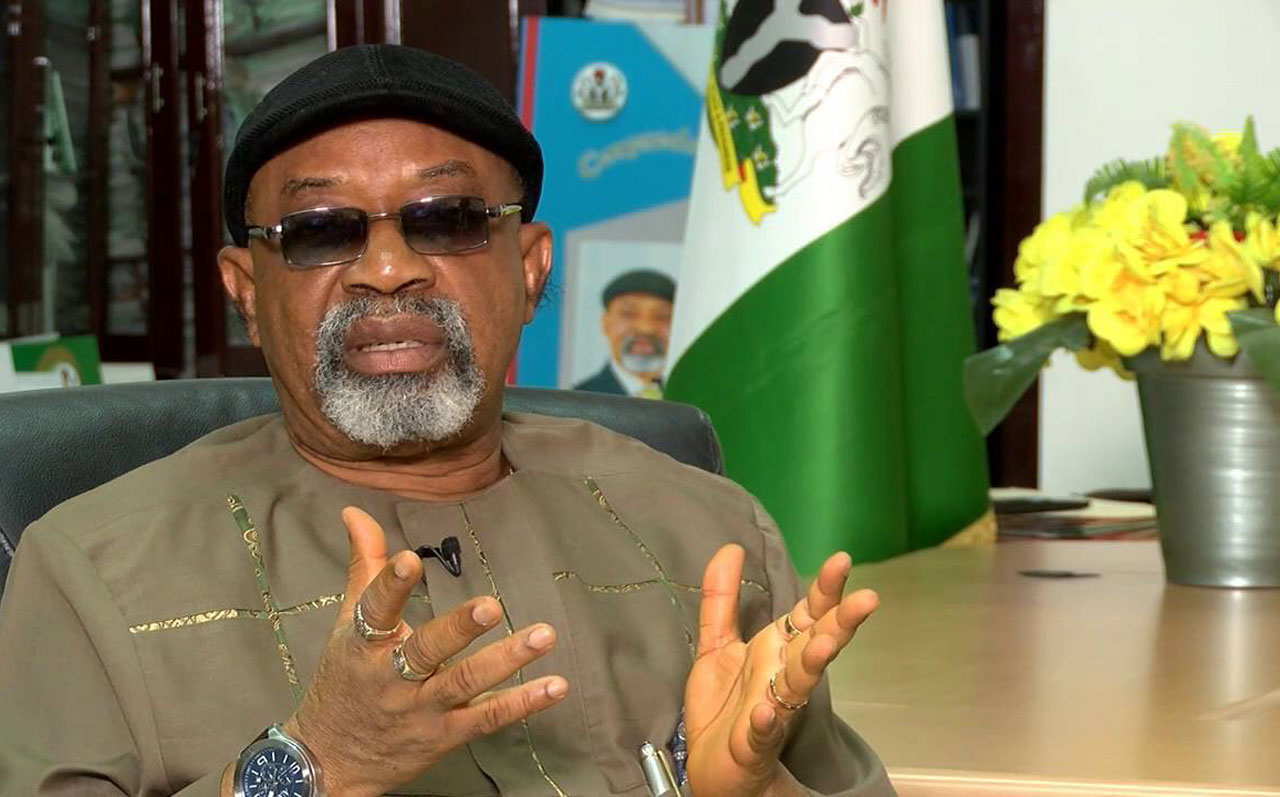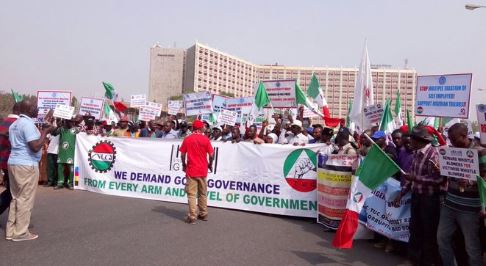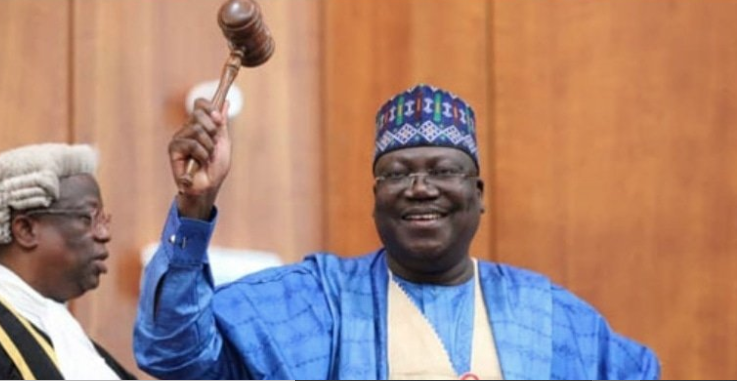The Federal Government and labour unions began talks on Monday to avert a nationwide strike by workers slated for Oct. 17.
Labour has resorted to the strike option, after negotiation collapsed in finding a way out of the minimum wage logjam.
The two parties have engaged in endless and often fruitless meetings, raising anxiety and frustrations among public sector workers, who have waited patiently over the months for the new wage.
Speaking in Abuja on Monday at the continuation of a conciliatory meeting, Minister of Labour and Employment, Dr Chris Ngige, said the meeting was an opportunity for information sharing and an avenue to soften ground for a final meeting, slated for Oct. 15.
He told the labour leaders to be open-minded in their dialogue so that both parties could get a way out of the minimum wage logjam.
Ngige said he believed that the meeting would bring an end to issues in contention, if both parties agreed and understood each other’s positions.
“If we don’t soften the ground bullets will fly and at the end of the day we will come back to the negotiating table. That is why we are doing this as a proactive measure.
“Part of my work is to ensure that there is a quiet industrial milieu. The workforce brings out their full productivity and employers, businesses will not be disrupted. That is why we called you again.
“Tomorrow, we are going to do the mixed-grill meeting. That mixed-grill meeting tomorrow can be one hour meeting, it can be two hours or it can be 12 hours, depending on what we are able to achieve today.
“I appeal to everybody to show some understanding.
“We are going to discuss dispassionately. Nothing will be hidden from anybody. The books of government, I talked about it before– when I mean books they are budgets– 2019/2020, we will make it bare.
“I have warned them and I have advised them that if they come they should be prepared to present their case, meaningfully and successfully.
“I will stay in the middle as an arbiter because that is what I am going to do in this instance.”
The Deputy President of the Nigerian Labour Congress, Mr Amaechi Asugwuni, who spoke on behalf of organised labour, said that the meeting was called by the minister to share information with labour leaders.
He said that labour had made considerable shift on its demands from the earlier position on the consequential adjustment of the N30, 000 minimum wage.
“We all know the consequences of delay is never fruitful and as such organised labour has come here with open mind in ensuring that facts are facts, also the situations are already known to us.
“The economy is biting and as a matter of fact, we must assist the process at this time in ensuring that we close it earlier than needed so that we can avert the unforeseen.
“It is only when you don’t know where you are going that you will waste a lot of time doing nothing.
“The position of labour is very clear. It gives us the signpost of what we have asked for and where we are going. So every delay, every action taken is toward that position and we know that you will do your best to get there.
“We believe that the Federal Government will do the needful because ours is a straight forward proposal.
“We have made our proposal to the FG before now and government is to respond. We believe that by
tomorrow, we will get the FG’s feedback and know the next thing to do.
“Labour will not tolerate anything short of reasonable adjustment in the ongoing negotiation.
“The consequential adjustment is a matter of percentage which requires give and take principle. You state what you want but it depends on government to see sense in your demand.
“Labour has shifted beyond expectation. What government needs to do is to reciprocate by doing what is needful to appreciate the workers.
“We are talking about compensation, salary and legitimate compensation for work done. Inasmuch as we believe in the consequential adjustment, it has to be reasonable, otherwise, people will feel neglected.
“Tuesday’s meeting is the benchmark for labour’s action but mobilisation continues. The meeting will tell us the way forward because anything can happen.”
On the mobilisation for strike, Asugwuni said that the meeting on Oct. 15 would determine everything, noting that mobilisation was on top gear “for an industrial action from 17th October, 2019”.
NAN recalls that labour leaders are demanding 29 per cent salary increase for workers on salary grade level 07 to 14 and 24 per cent adjustment for officers on salary grade level 15 to 17.
But the Federal Government had presented a proposal of 11 per cent salary increase for officers on grade level 07 to14 and 6.5 per cent adjustment for workers on grade level 15 to 17.
On May 14, the Federal Government inaugurated the relativity and consequential adjustment committee, which in turn set up a technical sub-committee to work out a template for the adjustment of salaries of public service employees.
But government and labour have failed to reach an agreement over relativity and consequential adjustments for the implementation of the new wage more than six months after it was signed into law by President Muhammadu Buhari.
In a communiqué issued on Oct. 7, labour warned that economic activities would be shut down from Oct. 16, if the Federal Government failed to reconvene a meeting of the committee on consequential adjustments.



